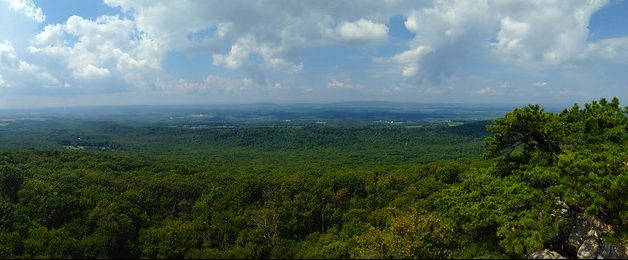No good deed goes unpunished. That adage might be applied to Gordon Strong’s 1954 donation of Maryland’s Sugarloaf Mountain as a preserve for public use, while remaining in private hands. Stronghold, Inc., a nonprofit organization, owns most of the mountain and, until recently, intended to keep it open for public use (as it has been since Strong’s death).
But Frederick County wants control over Sugarloaf as part of its planning and preservation efforts. Stronghold, Inc., officials are opposed. In October Stronghold threatened to close the 3,400-acre area to the public if an overlay district is created that affects their ability to operate the property. The Washington Post quoted a representative of Stronghold:
“’If the Sugarloaf plan as presented for public hearing on Oct. 11 today passes, Stronghold will cease allowing general public access to Sugarloaf Mountain, a privately owned mountain, to allow Stronghold, my client, time to evaluate the effects of the plan on its operations,’ attorney Noel Manalo told the council. He added that Stronghold representatives had been in touch with local law enforcement about where best to place signs reading ‘No trespassing.’”
Stronghold, Inc., which conducts events and public education on its property, has offered to discuss with the county an overlay district for its property alone.
On Oct. 25, the Frederick County Council tabled the “Sugarloaf Treasured Landscape Management Plan” on Oct. 25, leaving it up in the air for the incoming council.
Jack Hogan wrote in the Frederick [County] News-Post earlier this year (the debate has been going on for two years):
“The organization, Stronghold Inc., is strongly against the county government’s Sugarloaf Treasured Landscape Management Plan. Members of its board of directors reiterated that during [the Oct. 25th] County Council meeting.
“’Stronghold opposes the plan as it is written. It tends to remove any and all personal property rights that we now retain,” said John Webster, president of the board.”

